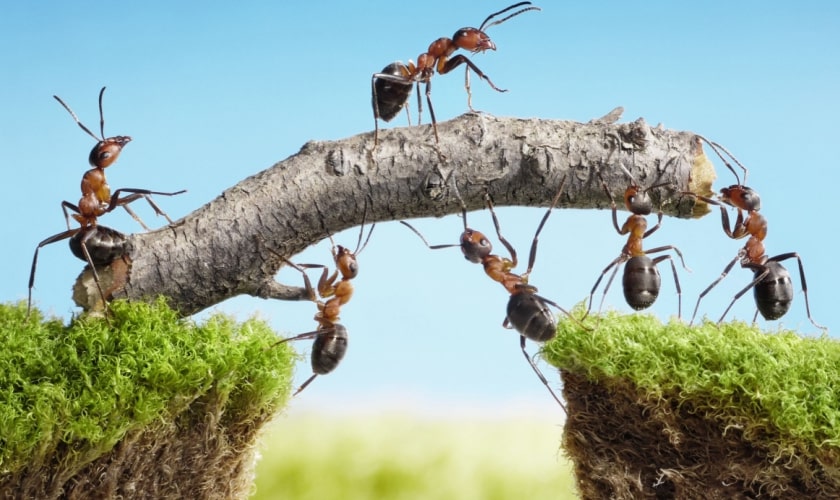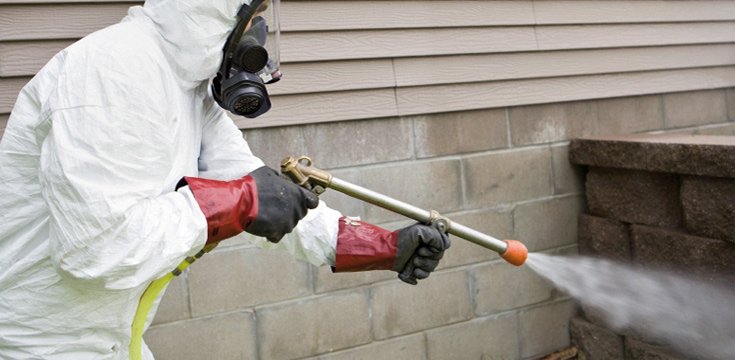Environmental Influence of Pest Control: Balancing Efficiency With Sustainability
The environmental effect of pest control is an important concern that needs a fragile balance in between accomplishing effectiveness in making certain and taking care of bugs sustainability of our ecological communities. As we aim to secure our crops, homes, and health and wellness from the threats presented by pests, the techniques we utilize can unintentionally damage the atmosphere. From making use of harmful chemicals that leak right into our soil and water to the unintended effects on non-target varieties, the repercussions of traditional bug control practices are significant. Nevertheless, there are emerging techniques that use expect a more lasting method to pest administration. These remedies not only aim to address the immediate pest issues however additionally take into consideration the long-lasting health of our earth.
Harmful Chemicals in Bug Control
The usage of harmful chemicals in bug control postures considerable ecological and health risks that necessitate careful consideration and mitigation approaches. Herbicides, pesticides, and chemicals are typically utilized to remove bugs, yet their prevalent application can cause unexpected consequences. These chemicals can pollute soil, water sources, and the air, affecting not only the targeted bugs however likewise helpful pests, wild animals, and human beings.

To address these dangers, incorporated insect management (IPM) methods are being advertised as an extra lasting choice. IPM involves a mix of approaches such as organic control, habitat control, and the targeted use of pesticides as a last hotel (ant control davidson nc). By adopting an alternative strategy to pest control, we can reduce the environmental and health effects related to harmful chemicals while effectively taking care of pest populaces
Effect On Non-Target Species
Considering the unexpected effects of pest control methods, the influence on non-target species is a critical facet that requires complete examination. While pest control measures aim to target specific insects, various other microorganisms in the ecological community might be unintentionally impacted. Non-target varieties, consisting of beneficial bugs, birds, creatures, and even plants, can suffer indirect or direct harm from pesticide applications or organic control approaches.
Chemicals can have deadly or sub-lethal impacts on non-target types. Pesticides made to combat a particular insect parasite might hurt pollinators like bees or natural killers such as ladybugs. In addition, chemical deposits can collect in the atmosphere, impacting non-target microorganisms with time. Biological control representatives, if not species-specific, can posture dangers to unexpected targets, interrupting the ecological equilibrium.
To alleviate the effect on non-target varieties, integrated insect monitoring (IPM) strategies that stress an all natural approach to pest control are recommended. These techniques prioritize making use of eco pleasant methods, decreasing injury to helpful microorganisms while effectively managing pest populaces. Performing thorough threat analyses and keeping an eye on the outcomes of pest control efforts are vital action in guarding non-target varieties and promoting overall community health and wellness.
Soil and Water Contamination
Unplanned environmental effects of pest control techniques prolong past impacting non-target types, with substantial implications for dirt and water contamination - ant control services. Chemicals, herbicides, and chemical plant foods made use of in pest control can leach right into the dirt and pollute groundwater, posturing a threat to both terrestrial and water communities.
Water contamination is one like it more crucial issue associated with pest control techniques. To minimize dirt and water contamination from bug control activities, integrated pest monitoring approaches that focus on sustainability and reduce chemical inputs are essential.
Air Pollution From Pesticide Usage
Direct exposure to airborne pesticides throughout farming applications positions a considerable issue for air pollution control procedures. They can volatilize right into the air and kind unstable organic substances (VOCs) and other air-borne contaminants when pesticides are splashed onto crops - termite control. These chemicals can add to the development of ground-level ozone, a significant component of smoke that can have harmful effects on human wellness, plant productivity, and total air quality. In addition, chemical drift, where pesticides are carried by the wind to unplanned areas, can bring about the contamination of close-by communities and water bodies.

Techniques for Sustainable Parasite Control
In the realm of agricultural methods, applying sustainable parasite control strategies is extremely important for maintaining eco-friendly equilibrium and safeguarding crop returns. Lasting pest control highlights the usage of environmentally friendly approaches to manage bug populaces effectively while lessening injury to non-target organisms and ecological communities. Integrated Insect Administration (IPM) is a widely embraced technique that integrates biological, cultural, physical, and chemical control methods to achieve long-term pest management solutions.
Plant rotation and diversity are also reliable methods to interfere with pest life cycles and produce much less positive conditions for bugs to flourish. Inevitably, by integrating these lasting insect control strategies, farmers can attain a balance in between pest administration efficiency and ecological stewardship.
Verdict
To conclude, the ecological impact of bug control methods have to be very carefully considered to balance performance with sustainability. Unsafe chemicals utilized in pest control can cause soil and water contamination, air contamination, and injury non-target types - termite control services. It is important to implement lasting insect control strategies to lessen these adverse effects on the atmosphere and promote a much healthier ecosystem for future generations
By embracing an all natural approach to pest control, we can reduce the environmental and wellness influences associated with dangerous chemicals while properly handling pest populations.

To alleviate the air contamination triggered by chemical use, it is necessary to adopt incorporated pest administration strategies that prioritize the usage of non-chemical pest control techniques, such as plant rotation, natural killers, and resistant crop ranges. Lasting insect control stresses the use of environmentally pleasant methods to handle parasite populations successfully while minimizing damage to non-target microorganisms and communities. Integrated Bug Monitoring (IPM) is a widely embraced technique that combines biological, cultural, physical, and chemical control techniques to attain long-term bug management options.
Comments on “Top Ant Control Services: Reliable Solutions for Your Home or Company”